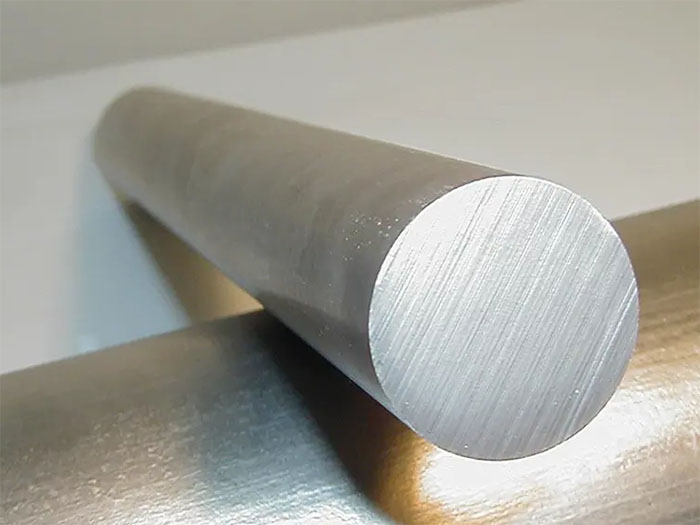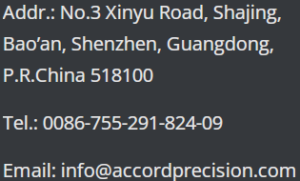TA1 / TA2 / TA3 (Pure titanium)
This type of titanium has excellent stamping (forming) performance, which can be welded in a variety of forms, good welding performance, welding joints can reach 90% of the strength of the base metal. It is easy to be cut by saw and grinding wheel, good machining performance. Also it has excellent corrosion resistance, suitable for low stress parts under 350℃ and parts stamped into various complex shapes. Such as condenser in thermal power station, Marine piping systems, valves and pumps corroded by seawater, Chemical heat exchanger, pump body, distillation tower,desalination system, platinum-plated anode, aircraft frame, skin, engine parts, beam, etc.
Titanium alloy TA6:
Parts and welds with good welding properties, high creep strength, low process plasticity, and can deform under hot conditions. This kind of Titanium alloy is insensitive to notching when subjected to axial load, and still has good cutting performance and works below 400℃.

Titanium alloy TA7:
Poor stamping (punching) performance, good thermoplasticity. TA7 can be welded into various forms, good performance, the strength and plasticity of the welded joint can be the same as the base metal. Machinability is the same as industrial pure titanium. Structural parts with good corrosion resistance, good thermal stability at high temperature and long-term work below 500℃ can be used as various die forgings.
Titanium alloy TA8:
Titanium alloy TA8 has good thermoplasticity. It can be welded into various forms, with good weldability. Machinability of TA8 is the same as industrial pure titanium. It is suitable for machining parts with good oxidation resistance for long term work below 500℃, and engine compressor plates and blades.
TC1 titanium alloy
TC1 can be welded into various forms, with good weldability. Machinability is the same as industrial pure titanium. Parts with good oxidation resistance and can work below 400℃. Suitable for all kinds of plates, stamping parts and welding parts.
TC2 titanium alloy
Hot working has good plasticity, when heated to 350℃ and keep 100 hours its durable strength stays in 400MPa or above. When heated to 350-400 ° C, there is no embrittlement tendency. Therefore, it can be used to weld parts working at high temperatures to make parts of welders, die forgings and bending parts working below 500 ° C.
TC3 titanium alloy
TC3 titanium alloy has poor stamping performance, good thermoplasticity. Can be welded into various forms, welding joint strength up to 90% of the strength of the base metal. machinability is good, tools in machining process better should be cemented carbide, with large feed speed, slower rotating speed , sufficient cooling. It has good corrosion resistance and thermal stability, and one of the titanium alloys widely used in long-term work below 400℃.
TC4 titanium alloy
The material composition of TC4 is Ti-6AL-4V, which belongs to (A + B) titanium alloy, and has good comprehensive mechanical properties, and higher specific strength. Strength TC4 Sb =1.012MPa, density G =4.4*103, specific strength Sb/G =23.5, and alloy steel specific strength Sb/G is less than 18. Titanium alloy has low thermal conductivity. The thermal conductivity of titanium alloy is 1/5 of iron and 1/10 of aluminum. The thermal conductivity of TC4 L = 7.955 W /m· K, linear expansion coefficient =7.89*10-6℃, and specific heat = 0.612 CAL /g℃. The elastic modulus of titanium alloy is low. The elastic modulus of TC4, E=110GPa, is about 1/2 that of steel. So titanium alloy in the process of deformation. Surface modification of TC4(TI-6AL-4V) and TA7(Ti-5Al-2.5Sn) titanium alloys was carried out by two injection schemes. The EXPERIMENTAL RESULTS SHOW THAT AFTER ion IMPLANTATION, THE MICROHARDNESS OF titanium ALLOY IS INCREASED, the sliding friction coefficient IS DECREASED OBVIOUSLY, AND THE wear resistance IS improved effectively. In order to understand the mechanism of modification, X-ray photoelectron spectroscopy (XPS) was performed on injected and uninjected samples. Satisfactory results were obtained. TC4 titanium alloy has a series of advantages such as excellent corrosion resistance, low density, high specific strength, good toughness and weldability. It has been successfully used in aerospace, petrochemical, shipbuilding, automobile, molds, medicine and other areas.



